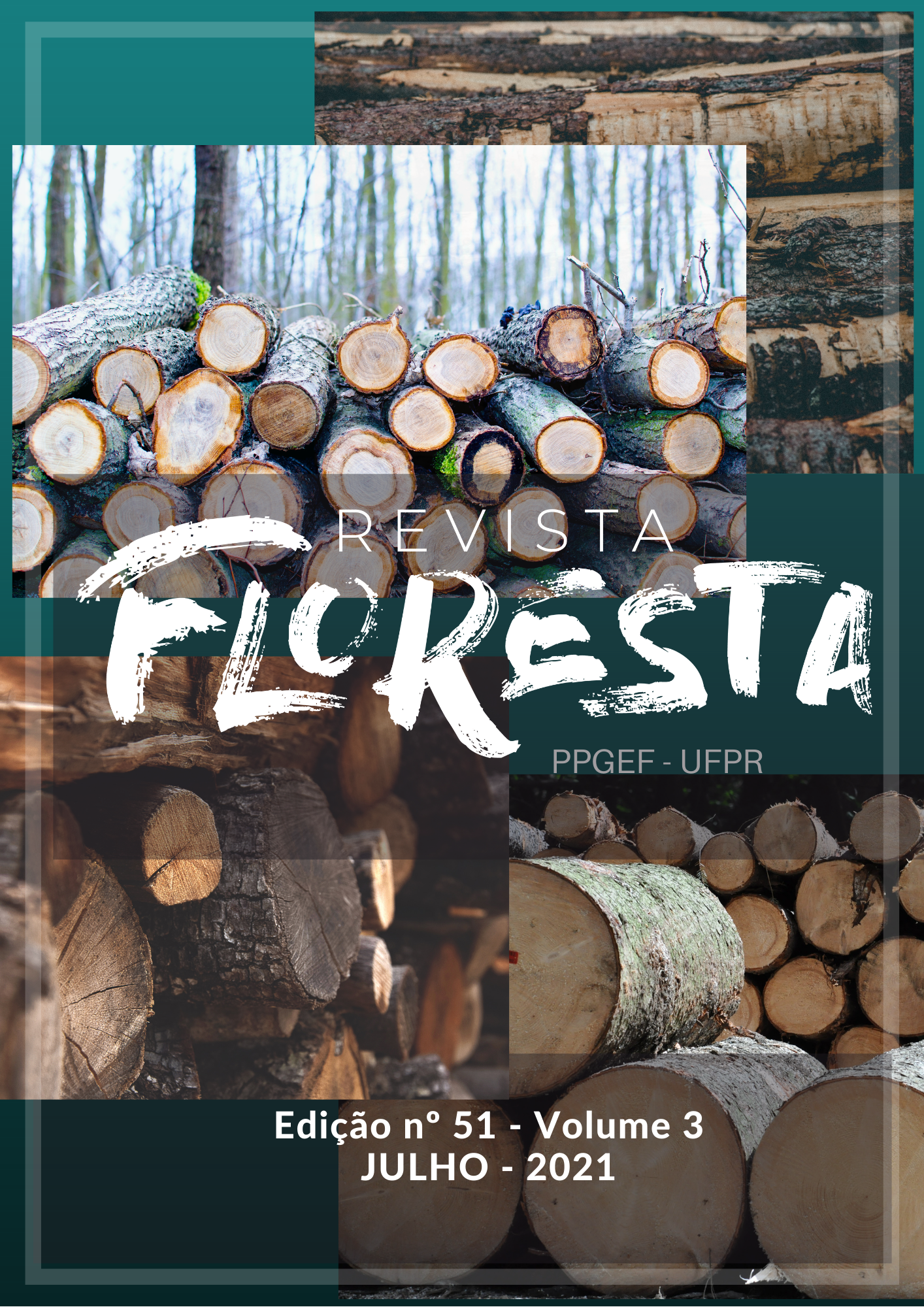ESTIMATING FINE DEAD FUEL MOISTURE CONTENT UNDER EQUATORIAL CLIMATE CONDITIONS
DOI:
https://doi.org/10.5380/rf.v51i3.72389Palavras-chave:
fire risk, fire weather, fuel moisture modelling.Resumo
The measurement of the fine dead fuel moisture content (FDFMC) is extremely important for forest fire prevention and suppression activities, as it has a great influence on the ignition probability and fire behavior. The Fine Fuel Moisture Code (FFMC) from the Fire Weather Index (FWI), is one of the most used models to estimate the FDFMC. Nevertheless, studies that assess the efficiency of this model in Brazil or in low latitude regions are rare. The present study aimed to evaluate the efficiency of the FFMC in an equatorial climate area and to develop a new model capable of estimating the FDFMC with greater precision. For this purpose, 861 random samples of fine dead fuel had their moisture content determined through oven drying. The obtained values were compared with those estimated by the FFMC and correlated with meteorological parameters to build a regression model. The results obtained show that the FDFMC was overestimated by the FFMC. The independent variables with the greatest influence on the FDFMC were, in decreasing order of significance: air relative humidity, air temperature, amount of rainfall in the last 24 hours and number of days without rainfall. The developed model presented good statistical parameters (r2 = 0.86; p <0.0001; RMSE = 0.22) and can be used, in areas with similar characteristics of the study area, to estimate the daily fire risk and to determine ideal conditions for prescribed burns.
Downloads
Publicado
Como Citar
Edição
Seção
Licença
Direitos Autorais para artigos publicados nesta revista são do autor, com direitos de primeira publicação para a revista. Em virtude da aparecerem nesta revista de acesso público, os artigos são de uso gratuito, com atribuições próprias, em aplicações educacionais e não-comerciais.A revista, seguindo a recomendações do movimento Acesso Aberto, proporciona acesso publico a todo o seu conteudo, seguindo o principio de que tornar gratuito o acesso a pesquisas gera um maior intrcambio global de conhecimento.
Conteúdos do periódico licenciados sob uma CC BY-NC-SA 4.0



